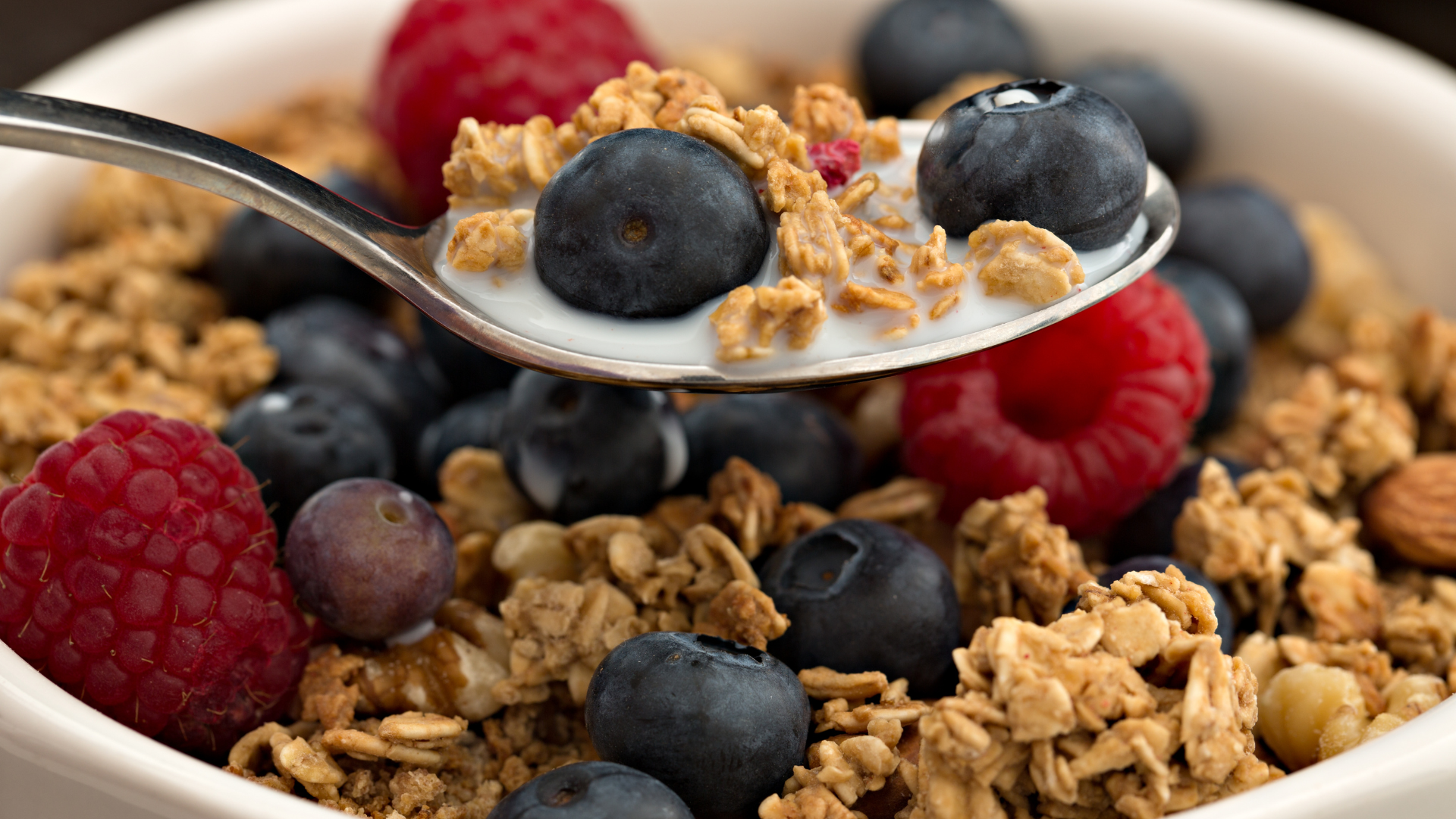
Cereal, particularly whole-grain cereal, offers numerous health benefits due to its rich nutrient profile. Here’s an in-depth look at how cereals contribute to overall well-being:
Table of Contents
1. Rich Source of Nutrients
Cereal, especially when fortified, provides essential vitamins and minerals, including:
- Fiber: Whole-grain cereals are high in dietary fiber, which promotes healthy digestion, helps maintain regular bowel movements, and may prevent constipation.
- Vitamins: Many cereals are fortified with vitamins such as B vitamins (including folic acid, B6, and B12), which are crucial for energy production and brain health.
- Minerals: Cereal often contains minerals like iron, magnesium, and zinc. Iron is essential for red blood cell formation, while magnesium supports muscle and nerve function, and zinc aids immune function.
2. Promotes Digestive Health
The high fiber content in whole-grain cereals aids in:
- Digestive Regularity: Fiber adds bulk to the stool and promotes regular bowel movements, reducing the risk of constipation.
- Gut Health: Fiber acts as a prebiotic, fostering the growth of beneficial gut bacteria that contribute to a healthy digestive system.
3. Supports Heart Health
Consuming whole-grain cereals can benefit cardiovascular health:
- Lower Cholesterol Levels: Soluble fiber in cereal helps reduce levels of low-density lipoprotein (LDL) cholesterol, commonly referred to as “bad” cholesterol.
- Blood Pressure: High-fiber diets are associated with lower blood pressure levels. Cereal can be part of a diet that helps maintain healthy blood pressure.
4. Aids in Weight Management
Cereal can support weight management in several ways:
- Satiety: High-fiber cereals increase feelings of fullness, reducing overall calorie intake by helping control appetite and preventing overeating.
- Low in Calories: Many cereals are low in calories yet high in nutrients, making them a healthy option for weight control.
5. Provides Energy
Cereals, particularly those rich in whole grains, provide a steady release of energy:
- Complex Carbohydrates: Whole-grain cereals contain complex carbohydrates that release energy slowly, helping to maintain stable blood sugar levels throughout the day.
- Sustained Energy: The slow digestion of complex carbs provides prolonged energy, making cereal a good option for breakfast to start the day.
6. Improves Cognitive Function
Certain cereals, especially those fortified with essential vitamins and minerals, support brain health:
- B Vitamins: B vitamins are crucial for cognitive function, including memory and concentration. Adequate levels of B vitamins can improve brain function and mental clarity.
- Iron: Iron is vital for oxygen transport in the blood and can affect cognitive function and overall brain health.
7. Supports Bone Health
Fortified cereals can contribute to bone health:
- Calcium: Many cereals are fortified with calcium, which is essential for maintaining strong bones and teeth.
- Vitamin D: Some cereals are also fortified with vitamin D, which enhances calcium absorption and supports bone health.
8. Reduces Risk of Chronic Diseases
A diet that includes whole-grain cereals may reduce the risk of various chronic diseases:
- Type 2 Diabetes: Whole-grain cereals can improve insulin sensitivity and help regulate blood sugar levels, potentially reducing the risk of type 2 diabetes.
- Certain Cancers: Some studies suggest that a high-fiber diet, including whole grains, may lower the risk of certain cancers, such as colorectal cancer.
9. Enhances Overall Nutrient Intake
Cereal can contribute to a well-rounded diet by:
- Adding Variety: Incorporating different types of cereal can add variety to your diet, ensuring you get a broad range of nutrients.
- Complementing Other Foods: Cereal pairs well with fruits, nuts, and dairy, enhancing its nutritional value and making it easier to incorporate into a balanced diet.
10. Convenient and Versatile
Cereal is a convenient option for many people and can be used in various ways:
- Breakfast Option: A quick and easy breakfast that can be paired with milk or yogurt for added nutrients.
- Snack or Meal Component: Cereal can also be used in recipes, as a topping for yogurt or salads, or enjoyed as a snack.
Cereal, especially whole-grain varieties, offers a wide range of health benefits, from supporting digestive health and heart health to aiding weight management and cognitive function. Fortified cereals further enhance these benefits by providing essential vitamins and minerals. By incorporating cereal into a balanced diet, individuals can enjoy its nutritional advantages while supporting overall well-being.




Leave a Reply
You must be logged in to post a comment.